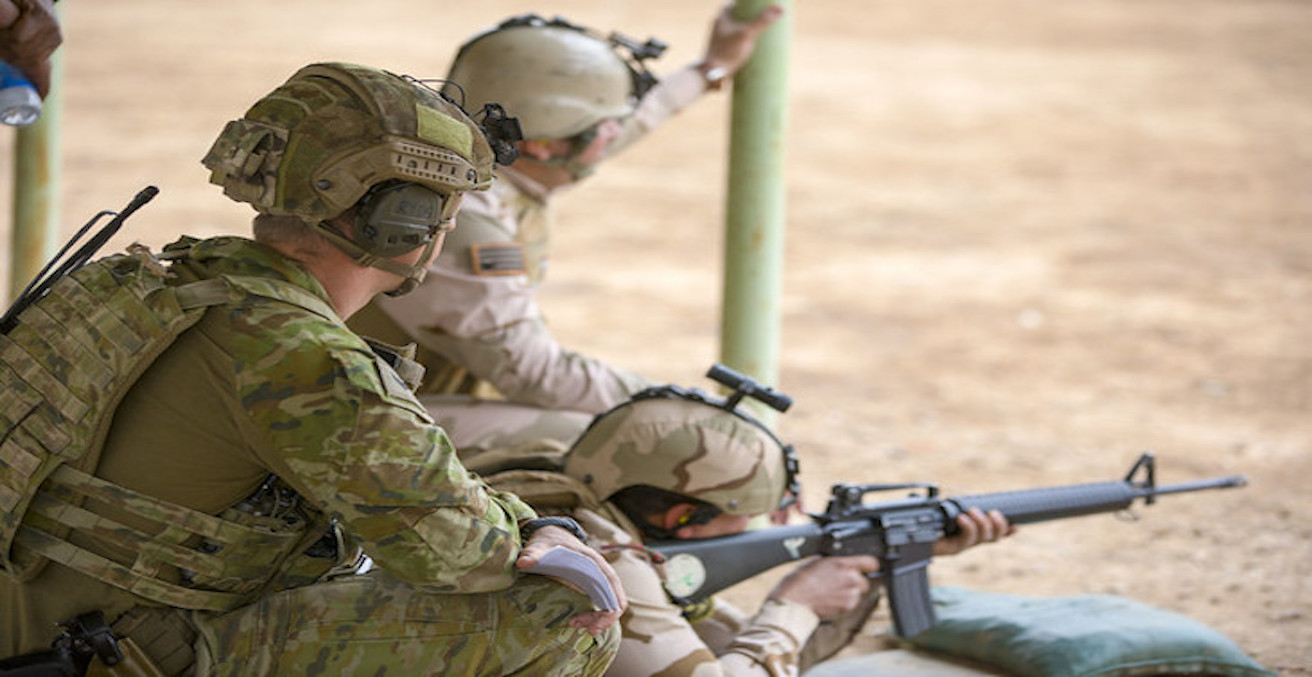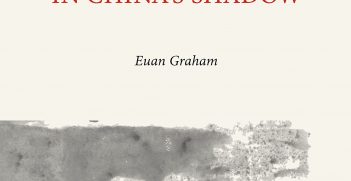What's Wrong With Australia's Middle East Policy?

The US has asked Australia to join an international naval coalition in the Persian Gulf. The Morrison government is likely to agree, but our process for considering such requests is seriously flawed.
The Middle East is a conundrum for Australian policy makers – for elected governments and for civilian and military professionals in various departments who advise them.
On any objective measure, the region should be well down the list of Australian foreign and defence policy priorities. And so it is. Successive foreign policy and defence White Papers in the past 30 years have focused on Australian strategic interests in terms of our immediate region and our key relationships with the US, China, Indonesia and Japan. Yet we have been involved militarily in the wider Middle East (in conflict and peacekeeping roles) more than in any other region of the world over the century since the outbreak of the First World War.
The reasons are several, but the main one has been our alliance relationships: Britain in the first half of the 20th Century, and the US over the past 40 years. Our peacekeeping roles have been largely on behalf of the UN, though we joined the Multinational Force and Observers in 1981 at US request to help monitor the Israel-Egypt peace treaty.
Australian foreign and defence policy decisions are made in a domestic context. Ministers involved in foreign policy and defence decision-making weigh carefully the advantages to be gained by an external military commitment compared with the potential downturn in the polls if the commitment becomes a political liability.
Despite the fact that Australian governments have regularly put Australian forces in harm’s way in the Middle East, the region has been a generally thankless one for Western and Australian interests.
The Middle East has a habit of drawing the US and other Western states, almost invariably including Australia. Despite initial levels of public support, this has tended to be unpopular domestically.
Ministerial decisions on committing Australian forces to the region are too often taken with inadequate knowledge of the situation our troops will face on the ground, what the end game of their involvement should be, and how they will be extricated.
After I had briefed a minister a few years ago on the latest phase of the then-raging Iraq war, he commented, ‘That’s very depressing. If you can write a piece explaining why this part of the world is such a f–king mess, that would be helpful.’ That minister had been among those involved in committing Australian forces to Iraq in 2003. Had he had any real appreciation of the implications of that decision?
I recall another minister responding to Department of Foreign Affairs and Trade briefers after being updated on the latest Middle East crisis, ‘Okay, I don’t know anything about the Middle East, but here’s what we’re going to do.’
An associated weakness of Australian Middle East policy is that it tends to lurch between periods of major, even hyper, activity and relative passivity. The former has usually coincided with Labor governments, with a pronounced correction to the latter state when the Coalition assumes power.
For example, in a speech by then-Foreign Minister Kevin Rudd in 2011 on Australia’s interests in the Middle East, he argued that Australia is a middle power with global interests. Making the case that Australia should do what it can to encourage positive change in the Middle East, he said, ‘Australia’s national interests are no longer shaped by our regional strategic geography. While our region remains critical, we are now also profoundly shaped by political, economic and social developments around the world.’
In contrast, former Foreign Minister Julie Bishop appeared to directly reject Rudd’s stance when she opened a conference on the Middle East at the Australian National University in June 2014: ‘Events in the Middle East remind us of the limits on the Australian Government to solving global problems.’
Further confusion among Middle East states about Australia’s approach to the region is conveyed by gratuitous acts of carelessness – amounting in my view to unprofessionalism – which foreign ministers on both sides of politics have been guilty of.
During a visit to the Middle East in 2010 as Foreign Minister, Rudd publicly assured the Egyptian government of our enthusiastic support for a nuclear-weapon-free Middle East. But at his next stop, Israel, the only regional state with nuclear weapons, he avoided raising this issue because of Israeli sensitivities. He was accordingly embarrassed when a journalist at his joint press conference with the Israeli Foreign Minister inevitably asked him why.
With equal enthusiasm Bishop told an Israeli journalist during a visit there in 2014 that she knew of no international law that prohibited Israeli settlements in the Occupied Territories. This went against long-standing Australian policy, as well as international consensus, on the application of the Fourth Geneva Convention to the Territories. This convention prohibits occupying powers from transferring parts of their population to territories occupied as a result of conflict, and has the status of international law
A more recent example was Prime Minister Morrison’s announcement in the context of the Wentworth by-election last October that he was ‘open to a conversation’ on our following the US in moving our embassy in Tel Aviv to Jerusalem. In doing so he contradicted Bishop, who had said as Foreign Minister following the US decision in December 2017 that Australia’s policy on Jerusalem would remain unchanged as the issue was ‘subject to final status negotiations between Israel and the Palestinian Authority’. It was a textbook example of principled foreign policy being subordinated to domestic expediency.
An important factor in our US-centric approach to the Middle East has been that the Australian public has broadly seen the US under successive presidents since the end of the Second World War as leading a liberal international order. So Australian governments could draw on a wellspring of domestic trust in the US’s definition of its global role, making it relatively easy for them to make international commitments in support of US deployments.
But Australian public support for our transactional arrangement with the US has become more questionable under President Trump. The Lowy Institute 2019 Poll showed that only 25 percent of Australians have confidence in Trump to do the right thing in world affairs, a 5 percent drop since 2018.This creates a foreign policy dilemma for the Australian government. Up to now, the Australian Government’s approach to Trump has been to keep the touchy Administration as much onside as possible, including through shamelessly flattering the President himself as necessary.
Now is crunch time. US Secretary of State Mike Pompeo made clear after the AUSMIN talks between US and Australian foreign and defence ministers this month that the US wants Australia to join a US-led naval coalition to protect commercial shipping against Iranian attacks in the Persian Gulf.
Ministers have said Australia is seriously considering the request in line with our sovereign interests. But it’s almost inconceivable that we will decline.
It’s reasonable to assume that neither the US nor Iran wants all-out war. But as Professor of International Affairs at Princeton Stephen Kotkin has memorably noted, the Middle East is where strategy goes to die.
So the likelihood is that we will soon have Australian forces back in the Middle East in another open-ended military commitment with the US. I have a sense of deja-vu.
Ian Parmeter worked for 37 years in the Department of Foreign Affairs and Trade, the Department of the Prime Minister and Cabinet, and the Office of National Assessments, He is currently a Research Scholar at the Centre for Arab and Islamic Studies, Australian National University. This article is an edited version of an address he gave to the NSW AIIA branch on 23 July. Ian can be contacted at ian.parmeter@anu.edu.au
This article is published under a Creative Commons Licence and may be republished with attribution.





